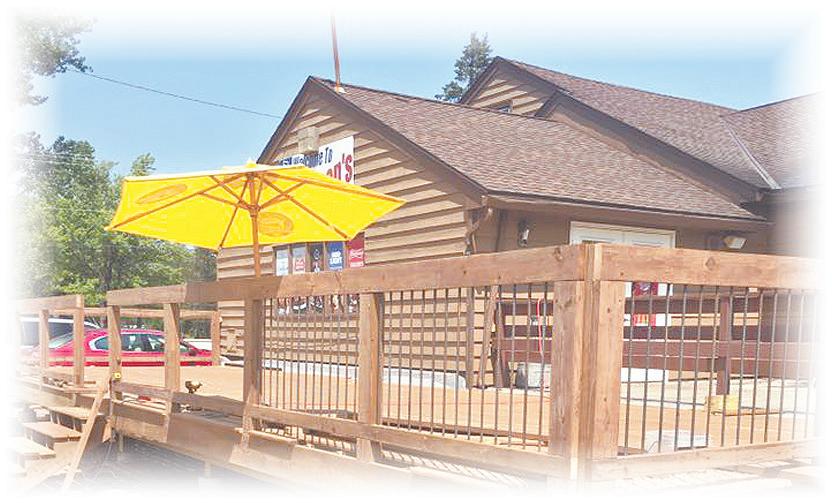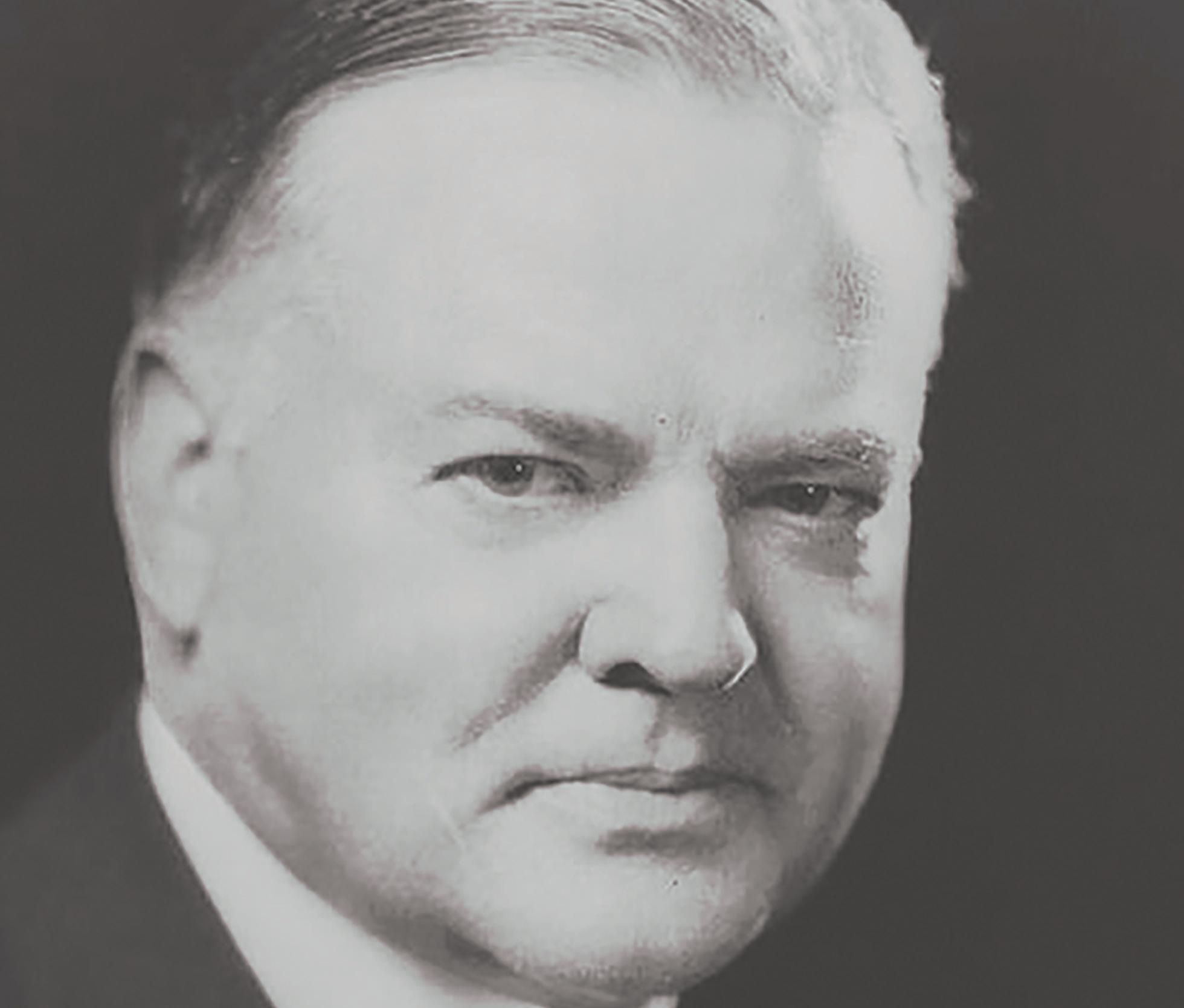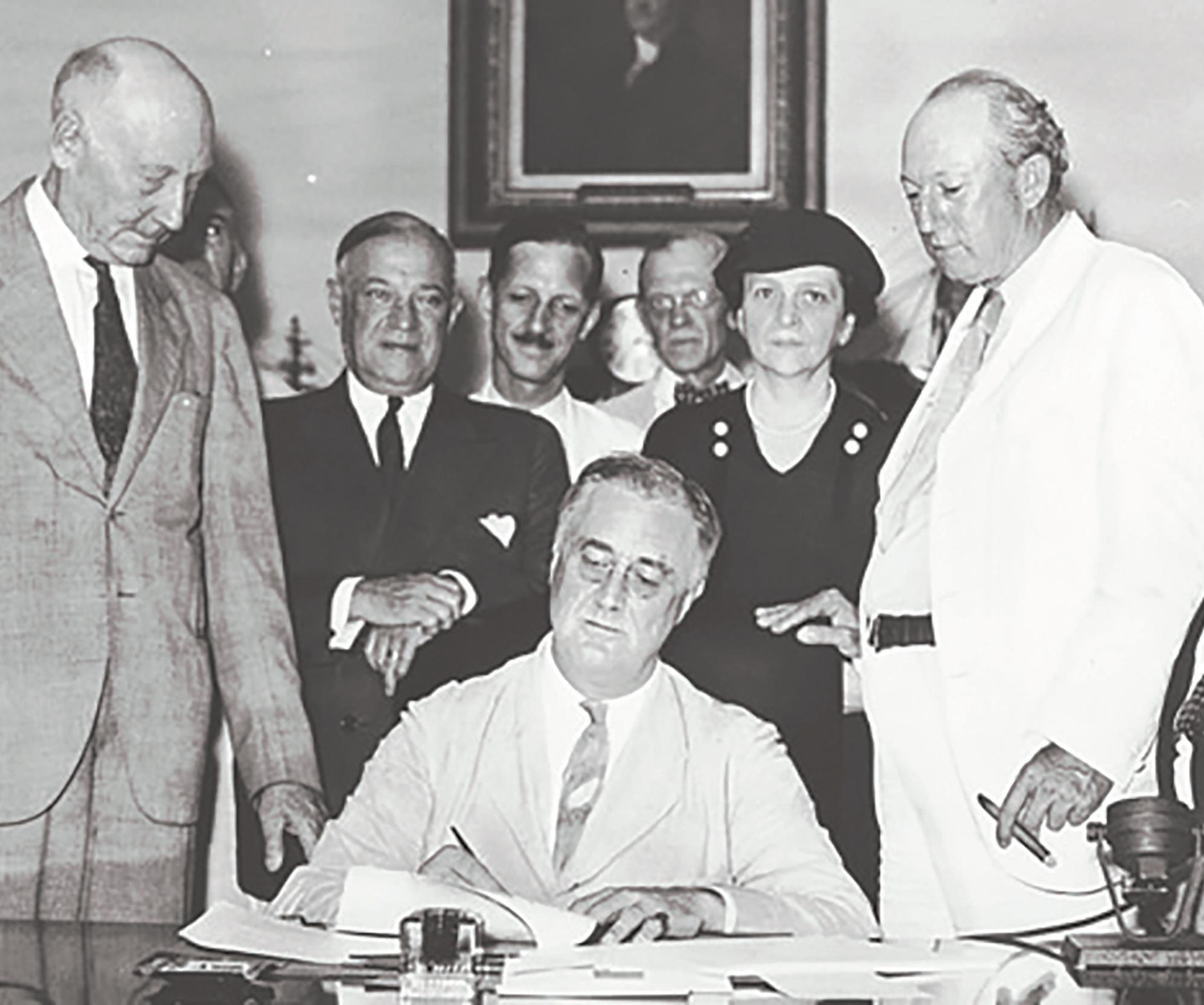
8 minute read
29th
Warren G. Harding was born on November 2, 1865, in Blooming Grove, Ohio. Harding was the first of eight children born to George (a schoolteacher) and Phoebe (a midwife). At the age of fourteen, Harding enrolled at Ohio Central University where he excelled in his studies. Following his graduation, he moved with his family to Marion, Ohio, where he and a friend purchased a struggling newspaper known as the Marion Star, which became the most successful newspaper in town. As editor of the paper, Harding learned much about the publishing industry and also became involved in local politics.
On July 8, 1891, Harding married Florence Kling, who was five years his elder. Harding affectionately called her “the dutchess.” The pair would have no children of their own, but Florence had a son from a previous relationship. Florence would become deeply involved in the Marion Star and was officially designated its business manager.
In 1899, Harding was elected as state senator. He quickly became a popular and well-known politician and was eventually elected as lieutenant governor of Ohio, but was defeated in his bid to become the state’s governor. In 1914 Harding easily defeated Timothy Hogan and became a United States senator. Harding became a powerful voice in the Republican Party where he supported Prohibition and America’s involvement in World War I. As senator, Harding never introduced his own legislation and was careful not to take any political positions that could possibly alienate future political allies.
On December 17, 1919, Harding announced his intentions to run for president. Harding’s prospects for the office improved upon the sudden death of front-runner Theodore Roosevelt. Harding was nominated at the Republican National
Convention in 1920 as a compromise candidate. Historians liken the nomination of Harding to a “smoke-filled room,” where various powerful members of the Republican Party decided who could win the election. On November 2, 1920, Harding was elected the 29th president by a wide margin. He quickly appointed high-profile politicians to his cabinet and named Andrew Mellon secretary of the treasury, Herbert Hoover secretary of commerce, and Charles Evans Hughes as secretary of state. He also surrounded him- self with political allies from his home state known as “the Ohio Gang,” some of which would ultimately bring great discredit to his legacy.
Harding’s presidency is often considered one of the most corrupt in history, although much of the corruption was uncovered after Harding died in office. The most infamous scandal to occur during his presidency was the Teapot Dome Scandal. The Secretary of the Interior Albert Bacon Fall was bribed by a major oil com- pany to lease federal petroleum reserves in Wyoming and California at low prices rather than to the highest bidder. Fall would become the first cabinet member of a United States president to be sent to prison. Another member of Harding’s cabinet, Attorney General Harry Daugherty, was implicated in several corruption schemes, as were various others who were considered part of Harding’s inner circle. After his death, it was discovered that Harding had engaged in at least one long-term extramarital affair, one of which conclusively resulted in the birth of a child. Harding, however, can be credited with guiding the nation out of its wartime emergency, increasing federal spending, and with the creation of the Bureau of the Budget. He also championed civil rights.

Harding’s presidency was cut short upon his sudden death on August 2, 1923, of a cerebral hemorrhage. He would become the sixth president to die in office.

John Calvin Coolidge was born on July 4, 1872, in Plymouth Notch, Vermont. Calvin’s father, John Calvin Coolidge Sr., was a general store owner and his mother, Victoria Josephine Coolidge, died when Calvin was young. Coolidge helped run the family store, but his dream was not to run the store, but rather, to be involved in politics. His father held many local and national offices, including senator, and he carried this intrigue into college.
Calvin Coolidge was accepted into the prestigious Amherst College, and there became a member of the Republican Club. In this club he became a prominent figure and was respected by his peers. Coolidge graduated in 1895, then began studying law and passed the bar exam in 1897. He opened his own practice and started participating in local Republican politics.

Coolidge experienced great success in the Republican Party rather early in his political career, starting with his election to the city council in 1900. He then won several local elections. His major victory came when he was elected governor. As governor, Coolidge was able to put down a large strike, which cast him into the national spotlight and earned him a spot in the 1920 presidential election.
At the Republican National Convention, he was not elected president but instead was picked to be Warren G. Harding’s running mate. The Harding-Coolidge ticket won the election of 1920, but Harding’s presidency was plagued with scandal, like the infamous Teapot Dome Scandal. On August 2, 1923, Warren G. Harding died be - cause of a heart attack, and Calvin Coolidge was sworn in by his father, the only president to ever be sworn in by his own father.
As president, Coolidge was credited with restoring integrity to the White House and was given the nickname
John Calvin Coolidge
“Silent Cal” due to his dry sense of humor and his stoic demeanor. During his presidency he saw great economic prosperity during what later became known as “the Roaring Twenties.”
Coolidge believed in small government and tax cuts.
He was also instrumental in the ratification of the 19th Amendment, which ensured women would be allowed to vote in all public elections. In 1924, the Republican Party decided to not choose Coolidge to run for reelection because he appeared worn out and exhausted after the death of his son. After he left office, Coolidge actually took some responsibility for the stock market crash and openly admitted he “avoided the big problems” and said he could have prevented the Great Depression had he been more hands-on.
Herbert Clark Hoover was born on August 10, 1874, in a small town called West Branch, Iowa. By the time Herbert Hoover was just nine years old, he experienced a great deal of loss when his mother and father both died of unexpected illnesses. In elementary and high school, Hoover struggled to pass but had his sights set on being accepted to Stanford University. After barely passing the entrance exams, Hoover was accepted and majored in geology. Hoover spent his summers working as a geology assistant, but upon his graduation he eventually opened his own silver mine where he accumulated a great deal of wealth, making him a giant in this field.
While focusing on his mining business, Hoover also focused on helping people around the world and is often credited with being a great humanitarian. Before his political career, Hoover was asked by the US government to help get 120,000 US citizens out of Europe. Due to his various humanitarian efforts, he is often referred to as the “great humanitarian.”
Hoover first showed interest in running for president in 1920 but was blocked due to his support of the League of Nations, and Warren Harding was elected to office. Under the Harding presidency, Hoover was picked to be the secretary of commerce, a position which he held under the Coolidge administration as well. Hoover eventually clinched the White House in the 1928 election by a record margin.
Hoover will forever be tied to the Great Depression due to the Black Tuesday Stock
Market Crash and unwillingness to use his political power to intervene and help the American people. Due to his conservative beliefs, Hoover believed the government should play a limited role in relief efforts and relied heavily on the idea of
“rugged individualism,” or the belief that the people would get themselves out of the Great Depression. Many of Hoover’s plans did not work, and this led to the creation of terms like “Hoovervilles,” or shantytowns.


Hoover was unsuccessful in his run for reelection and is remembered as being one of the most unpopular presidents in history. Herbert Hoover also has been criticized for speaking out against Franklin D. Roosevelt’s New Deal programs.
Roosevelt and other presidents that followed Hoover lobbied for people to change their attitudes toward Hoover because the Great Depression started before and ended after his presidency.

Franklin D. Roosevelt was born in Hyde Park, NY in 1882. Born the fifth cousin of Theodore Roosevelt, Franklin was destined for politics. He attended Harvard University and Columbia Law School. In 1905, Franklin married Eleanor Roosevelt. He was elected to the New York Senate five years later. President Woodrow Wilson elected him Assistant Secretary of the Navy in 1913.
In 1921, however, tragedy struck. Roosevelt contracted Polio, a once common disease that rendered him unable to walk. Roosevelt did not let his condition destroy his political career. In 1928, he was elected governor of New York. Four years later, in 1932, he was elected as America’s 32nd president.
1932 was a turbulent time in American history. The country was mired in the misery of its worst depression in history. Millions of people were unemployed and few banks remained in business. Roosevelt immediately implemented a sweeping plan known as the “New Deal” to bring recovery to agriculture and business, relief to the unemployed and to those in danger of losing businesses, farms, or homes. He also developed the Tennessee Valley Authority – which provided electricity and flood relief to poor southern farmers. Roosevelt also initiated Social Security reforms, raised taxes on the wealthy, implemented new controls over banks and public utilities, and started an enormous work relief program for the unemployed.

Roosevelt had pledged the United States to the “good neighbor” policy, transforming the Monroe Doctrine from a unilateral American manifesto into arrangements
Franklin D. Roosevelt
for mutual action against aggressors. He also sought through neutrality legislation to keep the United States out of the war in Europe, yet at the same time to strengthen nations threatened or attacked. When France fell and England came under siege in
1940, he began to send Great Britain all possible aid short of actual military involvement.
When the Japanese attacked Pearl Harbor on December 7, 1941, Roosevelt directed organization of the Nation’s manpower and resources for global war.
Feeling that the future peace of the world would depend upon relations between the United States and Russia, he devoted much thought to the planning of a United Nations, in which, he hoped,
Franklin Delano Roosevelt
In 1930, there were over six million farms in America. Of those six million farms, only 650,000 of them were electrified with a central station or “high line” electric service. Over 5 million farmers were completely without electricity. The reason: It was too expensive for electric companies to run electricity from populated cities into rural America.
All of this would change on March 4, 1933, when Franklin Delano Roosevelt was Inaugurated as the 32nd President of the United States of America. President Roosevelt pledged to bring the luxury of electricity to rural America, and do so at an affordable price. On May 11, 1935, President Roosevelt signed an executive order creating the Rural Electrification Administration (REA). The REA offered the administra- international difficulties could be settled. tive assistance necessary to help rural farmers start their own electric companies (rural electric cooperatives), so they could finally have central station power at their farms and homes.
As the war drew to a close, Roosevelt’s health deteriorated, and on April 12, 1945, while at Warm Springs, Georgia, he died of a cerebral hemorrhage.
The families of rural Lake County took advantage of the REA’s offer, and on May 11, 1936, Cooperative Light & Power received a letter from the REA informing them that a $60,000 allocation had been made to begin the construction of 56 miles of line in Waldo, Knife River, and Knife River Valley.
Thank you, President Franklin Delano Roosevelt, for your commitment to making life in rural America better. From everyone at Co-op Light and Power, we salute you!










